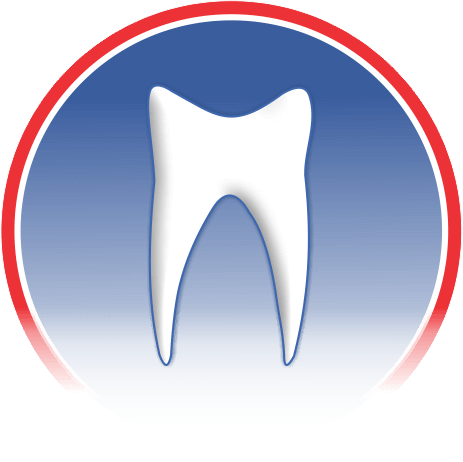Dental Implants
We are committed to all aspects of your dental health. Do you know that even one missing tooth can have an impact on your oral and overall health? Dentart –Total dental solutions bring years of expertise in the field of Implantology and are well equipped to restore your smile.
Dental implants are changing the way people live. They are artificial tooth root replacements that were first developed in the 1950s. Today, implant techniques provide a wide range of tooth replacement solutions for patients missing one, multiple or all teeth. Dental implants are an ideal option for people in good general health who have lost a tooth or teeth due to periodontal disease, an injury, or some other reason.
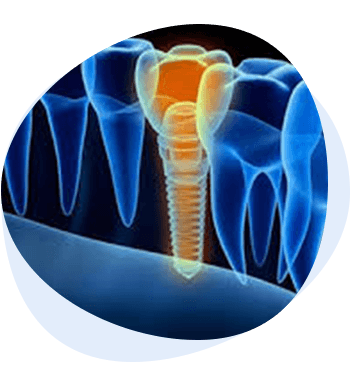
Dental implants are designed to provide a foundation for replacement teeth that look, feel and function like natural teeth – you may forget you ever lost a tooth. The person who has lost teeth regains the ability to eat in comfort and smile with confidence and speak clearly. Their teeth appear natural and the facial contours are preserved. While high-tech in nature, dental implants are actually more tooth-saving than traditional bridgework, since implants do not rely on neighboring teeth for support.

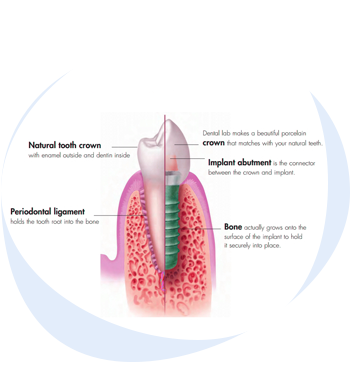
Your natural teeth are stable biting and chewing surfaces because they are supported by your jawbone. This will also be true of your dental implant. Successful dental implants become firmly embedded in the jaw, providing a chewing surface almost as secure as that of natural teeth.


The crowns of your natural teeth are held in place by roots. Roots not only secure your crowns, they also help keep your jaws healthy by stimulating the growth of new bone. This provides good support for your teeth.

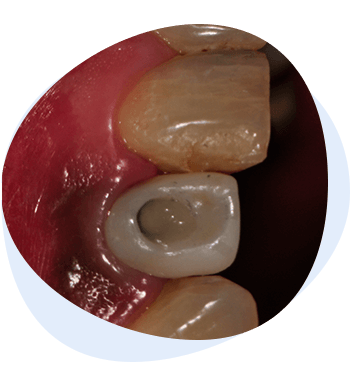
The prosthesis is held in place by implants which are usually made of titanium. Since this metal is well accepted by the body, titanium implants rarely cause reactions. Like the roots of natural teeth, implants also stimulate new bone growth in your jaw and prevent disuse atrophy due to tooth.

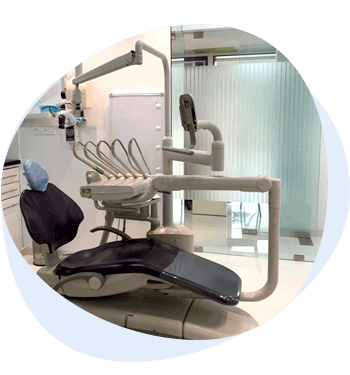
An implant may be threaded like a screw or may be cylindrical in shape with a slightly rough or textured surface. Implants often have small holes at their lower ends. Over time, bone grows into these surface irregularities and locks the implant into place.
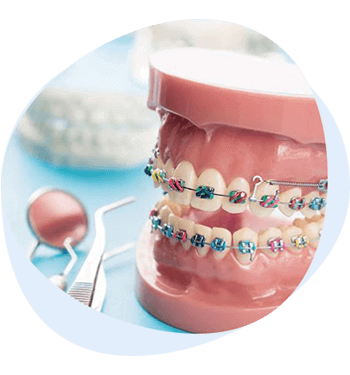

Dental implants can improve the quality of life for many people, but they aren't for everyone. Use the checklist below to help determine how you feel about your oral health. The more lines you check, the more likely dental implants will be a good choice for you.
How Your Mouth Feels?
- Do complete or partial dentures cause discomfort when you eat?
- Do you wear a denture that slips or fits badly?
- Are the teeth holding your bridge loosening or moving?
How You Feel About Your Teeth?
- Are you embarrassed about missing teeth or dentures when you smile or laugh?
- If you have a complete or partial denture, do you sometimes carry it in your
pocket or leave it at home?
Your Commitment to Dental Implants
- Can you wait three to nine months for the entire implant process to be completed?
- Are you willing to spend time caring for your dental implants?
- Will you follow up with regular periodontal checkups?

